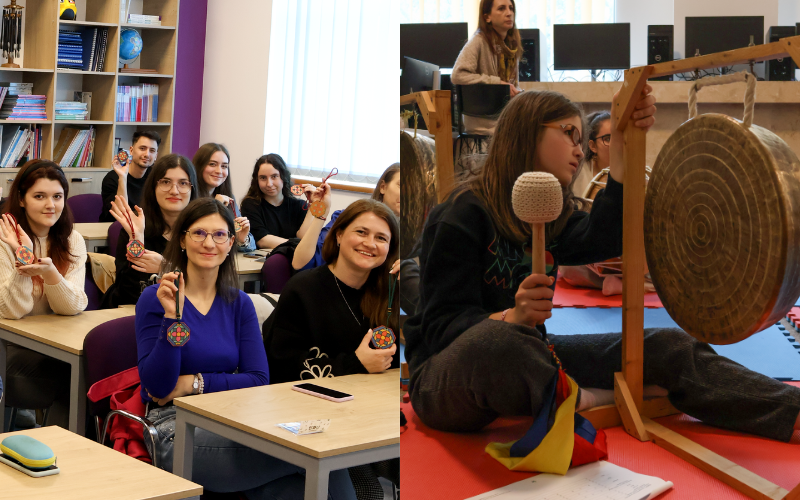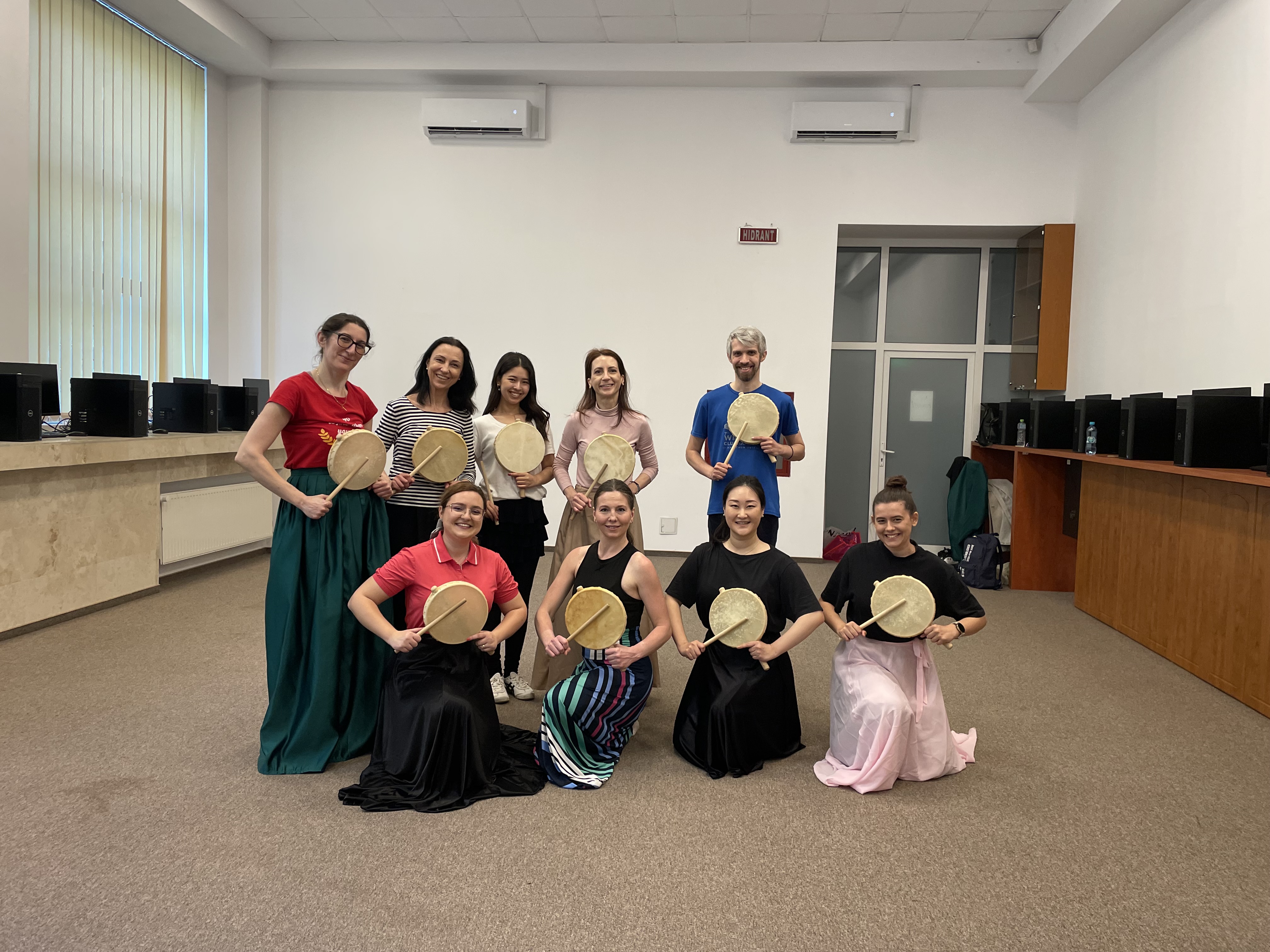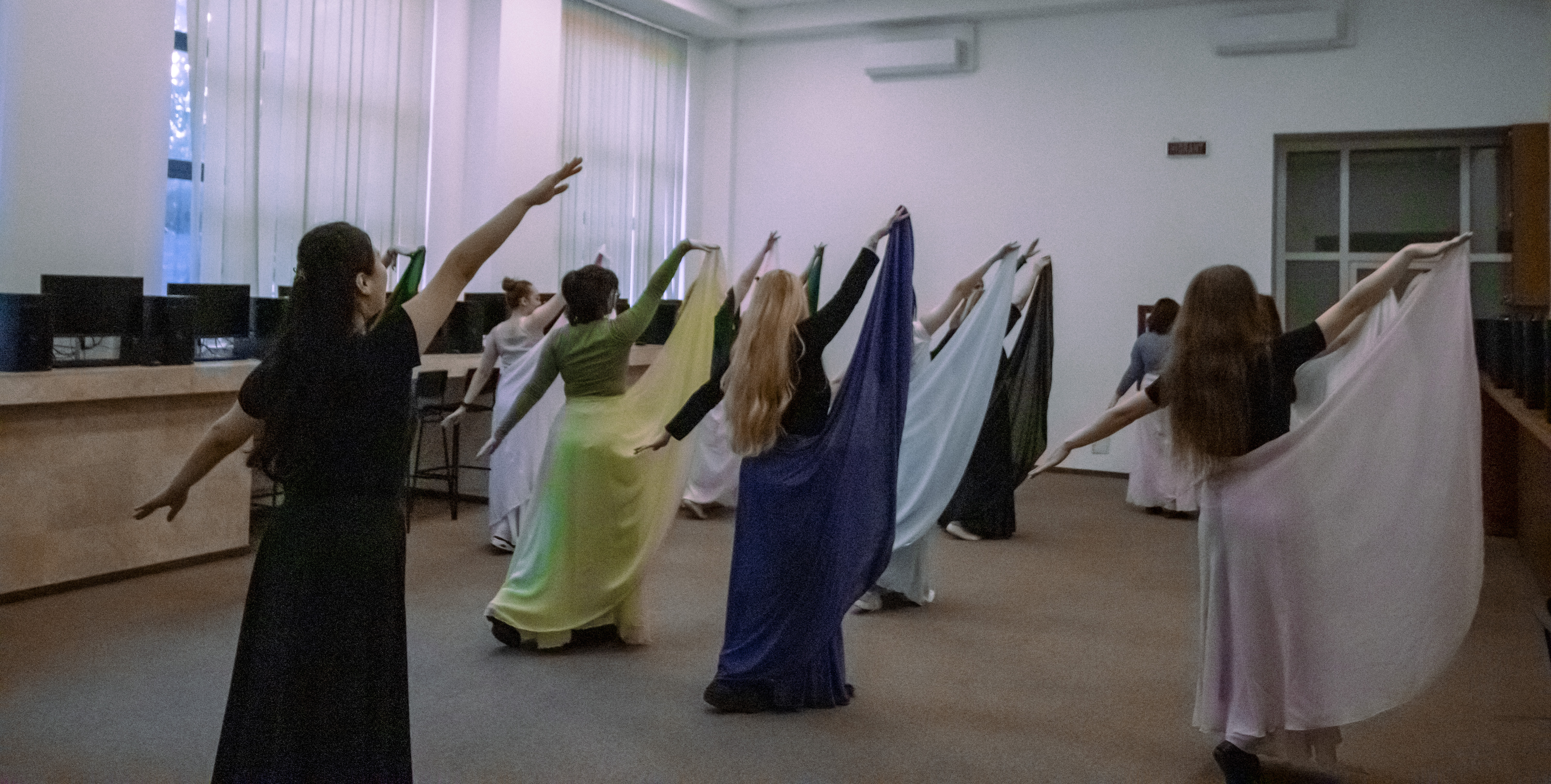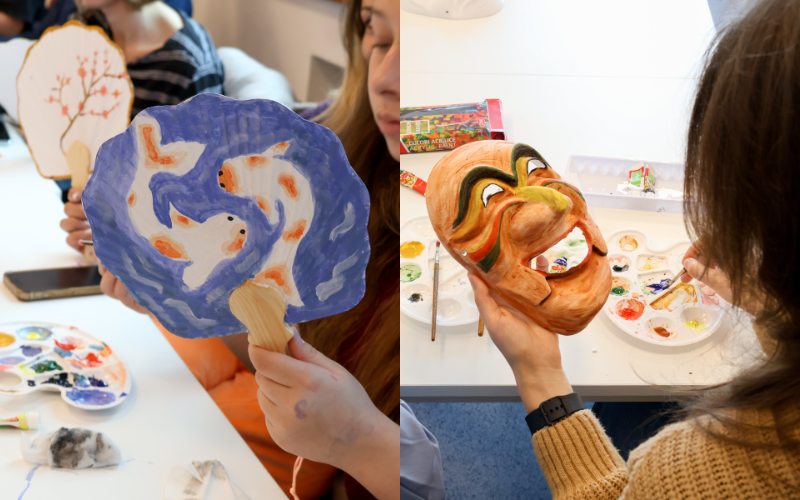From May 16 to 19, Bucharest hosted the K-Lovers Festival, an annual celebration organized by the Romanian-Korean Studies Center (CSRK) at the Romanian-American University, with the support of the Embassy of the Republic of Korea in Romania. The event offered a wide variety of hands-on workshops and cultural activities, allowing participants to explore and connect with the beauty of Korean traditions. The 2024 edition marked a decade since the festival first launched, continuing its mission to bridge cultures through creativity and learning. I had the opportunity to interview Diana Peca, the coordinator of the Romanian-Korean Studies Center, to find out more about the K-Lovers Festival held in Bucharest. The interview was conducted via e-mail on May 29.
Could you briefly introduce the CSRK and how it helps promote Korean culture to the Romanian public? Please, tell us about the K-Lovers Festival.
The Romanian-Korean Studies Center (CSRK), based at the Romanian-American University, aims to promote the Korean language, culture, and values in Romania through educational, cultural, and academic activities. We organize Korean language courses, conferences, book clubs, cultural exchange programs in South Korea, summer schools, and practical workshops that bring the richness of Korean culture closer to the Romanian public.
The K-Lovers Festival, now in its 10th edition, is one of our most important annual events, organized with the support of the Embassy of the Republic of Korea in Bucharest. This year’s edition included workshops on fan and traditional mask painting, Minhwa (민화- Korean folk painting), Samulnori (사물놀- traditional percussion), Dancheong (단청) decorative techniques, and Korean fabric collage. Our special guest, Ms. Minseong Seo—artist, choreographer, and director of the Berlin Korean Dance Project—led two vibrant dance workshops: one dedicated to the traditional Sogo dance, and a fusion workshop that blended traditional Korean dance with contemporary K-pop choreography.

The traditional Sogo dance workshop opened the festival. Do you believe this type of dance helps deepen understanding of Korean cultural values?
Absolutely. Sogo dance is quite a unique experience for Romanian audiences. While it’s not the first time such workshops have been held—some were organized by us in the past, including one in the early days of the center—we’ve seen ongoing interest in this tradition over the years.
I’m pleased to see how open the Romanian public is to discovering different aspects of Korean culture, whether traditional or modern. There’s always great satisfaction in seeing the enthusiasm people have, no matter which element of Korean culture we present.
Moreover, Sogo dance is recognized as part of Korea’s intangible cultural heritage (국가무형문화재). So I truly believe it fulfilled its role: helping participants better understand and appreciate traditional Korean values through movement, music, and joy.

The “Korean Dance-Lyrics” workshop fused traditional dance with K-pop. How do you see this fusion as a cultural education tool?
I’d like to highlight Ms. Seo’s perspective here. She mentioned that while K-pop is widely popular among Korean culture fans, people often hesitate when they hear about traditional dance, assuming it might be too formal or rigid.
By using fusion workshops, she’s able to introduce traditional dance elements through the familiar and accessible lens of K-pop. This way, participants relax and realize that traditional dance is not intimidating—in fact, it can be incredibly fun and energizing.
This workshop served as a welcoming gateway to traditional Korean dance, helping participants connect with the Korean heritage through a modern and relatable environment.

The festival offered a wide range of workshops, from painting to storytelling. What were the participants' reactions? Was there a standout activity?
What I love most about my work is seeing how warmly and passionately people respond to everything we do. The Romanian public is sincerely engaged with Korean culture, not just curious but truly enthusiastic.
Every time we organize an event like this, I know many people will want to join—and they do. This year, we even had some bad weather, and I wondered whether it might deter attendance. But I reminded myself of how dedicated our community is. And I was right: the workshops were full, and registration forms had to close early due to high demand.
It’s hard to single out just one workshop as the most successful. Each one addressed a different cultural theme and was equally well received. That variety—and the public’s excitement—motivates us to continue our work with even more passion.

After ten editions, have you noticed any changes in how Romanian people perceive Korean culture? Is there a specific audience segment that engages more?
Over the past ten years, we’ve witnessed a steady rise in interest in Korean culture. The public no longer attends just out of curiosity—they genuinely want to understand and go deeper.
Young people, especially students and high schoolers, are very active, but we also see participants of all ages, including adults, in our language classes. We’ve also noticed more parents and teachers becoming involved, either to support their children’s interests or to integrate Korean cultural elements into educational programs.
What are CSRK’s long-term goals for promoting Korean culture in Romania? Any future projects you can share?
Looking ahead, one upcoming project I can share is the Korea Corner Anniversary Gala, which we’re organizing this fall in collaboration with the Embassy of the Republic of Korea. Unlike previous years, when it was part of the K-Lovers Festival, this time we’ve decided to make it a standalone event, allowing us to surprise our audience with something truly special.
The gala will take place in early October and, as always, we’ll honor the top 10 students from our Korean language program. It will also be an opportunity to bring together Korean culture enthusiasts and members of the Korean community in Bucharest.
We’re committed to continuing our core programs: language courses, the “Hanji Reads” book club, and our partnerships with institutions in Korea. This summer, one of our students will attend the Hanyang International Summer School thanks to a scholarship offered with the support of the Korea Foundation. We’ll also resume student exchanges in the fall through the Erasmus+ program.
Finally, we aim to highlight other dimensions of Korea, including the economic field. For example, on May 15, we held a conference titled “Brief Perspective on the Current Challenges of the International Business Environment,” where one of our special guests was Professor Joohan Ryoo from Hanyang University. His presentation offered valuable insights into South Korea’s current economic landscape.
The K-Lovers Festival is a pillar in the growing connection between Romania and Korea, not only through shared appreciation of music, dance, and art, but also through deeper cultural understanding. Over the past decade, the Romanian-Korean Studies Center has created a meaningful space for dialogue, discovery, and celebration, offering Romanian audiences the opportunity to experience the richness of Korean heritage, both traditional and modern. As interest in Korean culture continues to flourish across generations, events like this ensure that cultural bridges remain strong, dynamic, and full of life.
How about this article?
- Like8
- Support0
- Amazing4
- Sad0
- Curious0
- Insightful2


